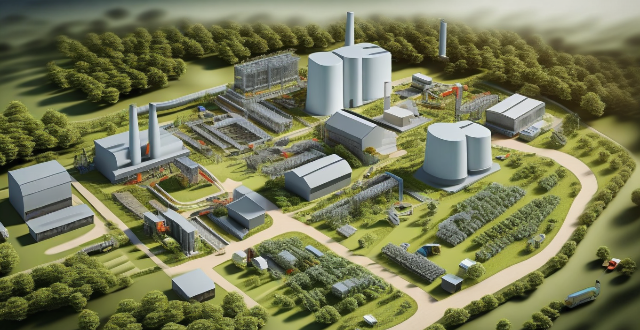The article discusses the environmental concerns associated with DC brushed motors, including high energy consumption, material extraction and processing, manufacturing processes, and end-of-life disposal. It suggests potential solutions such as improved efficiency, sustainable material sourcing and processing, eco-friendly manufacturing practices, and responsible end-of-life management to mitigate their impact on the environment.

Environmental Concerns Associated with DC Brushed Motors
Introduction
DC brushed motors are widely used in various applications, including electric vehicles, drones, and industrial machinery. However, the production and disposal of these motors raise several environmental concerns that need to be addressed. In this article, we will discuss the main environmental issues associated with DC brushed motors and explore possible solutions to mitigate their impact on the environment.
Key Environmental Concerns
1. Energy Consumption and Efficiency
- High Energy Usage: DC brushed motors typically have lower efficiency compared to brushless motors, resulting in higher energy consumption during operation.
- Carbon Emissions: The increased energy usage leads to higher carbon emissions from power plants, contributing to climate change.
2. Material Extraction and Processing
- Mining Impacts: The production of DC brushed motors requires the extraction of raw materials like copper, aluminum, and rare earth metals, which can cause significant environmental damage through mining activities.
- Chemical Pollution: The processing of these materials often involves the use of hazardous chemicals that can pollute waterways and harm ecosystems.
3. Manufacturing Processes
- Energy-Intensive Manufacturing: The production of DC brushed motors is an energy-intensive process, contributing to greenhouse gas emissions and other forms of pollution.
- Waste Generation: Manufacturing processes generate waste materials, some of which may be harmful if not properly disposed of.
4. End-of-Life Disposal
- Recycling Challenges: DC brushed motors contain multiple materials that are difficult to separate for recycling, leading to a low recycling rate.
- Hazardous Waste: Some components of DC brushed motors, such as batteries and capacitors, can contain hazardous substances that require special handling during disposal.
Potential Solutions
1. Improved Efficiency and Energy Management
- Brushless Motors: Switching to brushless motors can significantly improve efficiency and reduce energy consumption.
- Energy Recovery Systems: Implementing energy recovery systems can help minimize energy loss during operation.
2. Sustainable Material Sourcing and Processing
- Recycled Materials: Using recycled materials instead of virgin resources can reduce the environmental impact of material extraction and processing.
- Green Chemicals: Adopting greener chemical processes can minimize pollution associated with material processing.
3. Eco-Friendly Manufacturing Practices
- Energy-Efficient Production: Implementing energy-efficient technologies in manufacturing processes can reduce greenhouse gas emissions.
- Waste Reduction Strategies: Employing strategies to reduce waste generation, such as lean manufacturing principles, can minimize environmental impact.
4. Responsible End-of-Life Management
- Design for Disassembly: Designing motors for easy disassembly can facilitate recycling and proper disposal of hazardous components.
- Extended Lifespan: Improving the durability and longevity of DC brushed motors can reduce the number of motors that end up in landfills.
In conclusion, while DC brushed motors offer numerous advantages in various applications, their production and disposal raise significant environmental concerns. By addressing these issues through improved efficiency, sustainable practices, and responsible end-of-life management, we can work towards reducing the environmental impact of DC brushed motors and fostering a more sustainable future.